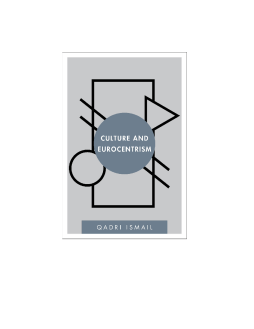
Additional Information
Book Details
Abstract
The conviction that we all have, possess or inhabit a discrete culture, and have done so for centuries, is one of the more dominant default assumptions of our contemporary politico-intellectual moment. However, the concept of culture as a signifier of subjectivity only entered the modern Anglo-U.S. episteme in the late nineteenth century. Culture and Eurocentrism seeks to account for the term’s relatively recent emergence and movement through the episteme, networked with many other concepts – nature, race, society, imagination, savage, and civilization– at the confluence of several disciplines. Culture, it contends, doesn’t describe difference but produces it, hierarchically. In so doing, it seeks to recharge postcoloniality, the critique of eurocentrism.
Qadri Ismail is Associate Professor of English at the University of Minnesota.
A lively, provocative and original work. Ismail’s vigorous arguments will stimulate debate across many fields, including postcolonial studies, cultural studies and global studies.
Rob Nixon, Currie C. and Thomas A. Barron Family Professor in the Humanities and the Environment, Princeton University
How scandalous is eurocentrism? The question is embarrassing: the larger eurocentrism’s vestiges seem to loom, the less room for scandal they leave. Qadri Ismail’s provocation, as sassy as it is erudite, aims a renewed postcolonial studies full in the face of this embarrassment.
Bruce Robbins, Old Dominion Foundation Professor in the Humanities, Columbia University
